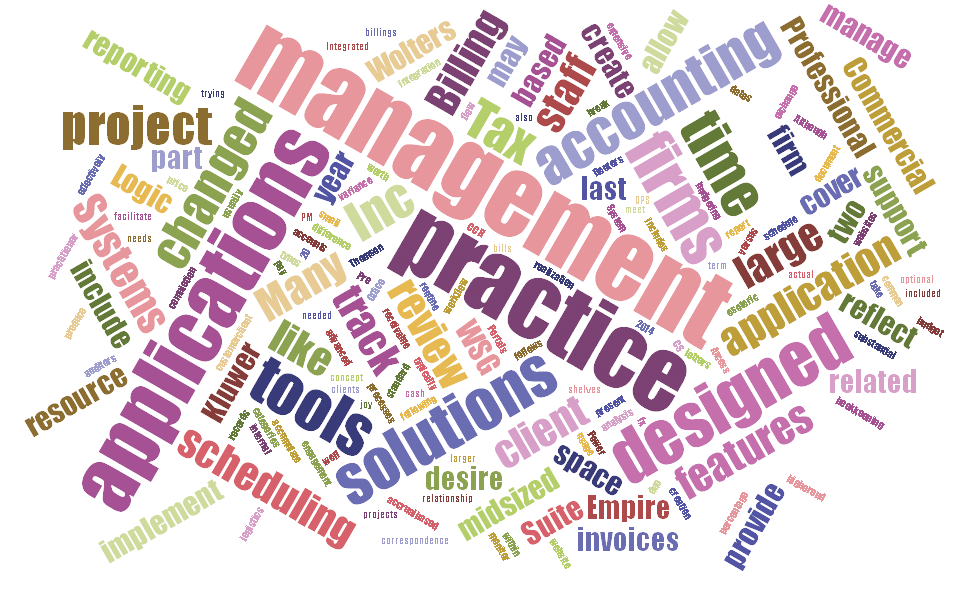As the space for practice management applications has changed over the last year, we have changed the applications which we cover as part of this review to reflect the desire of many mid-sized and large firms to implement staff scheduling tools.
Our review of practice management systems for professional tax and accounting firms includes the following applications:
- APS by Commercial Logic, Inc.
- Power PM by Commercial Logic, Inc.
- CCH Axcess Practice by Wolters Kluwer Tax & Accounting
- Pro System fx Practice Management by Wolters Kluwer Tax & Accounting
- Practice CS by Thomson Reuters Tax & Accounting
- Empire Suite by WSG Systems, Corp.
- Practice Management 2014 by Office Tools Professional, Inc.
We break down for management and billing applications into two categories – Time and Billing solutions, and Practice Management applications. The difference between these two types of applications is as follows:
- Time and Billing solutions are designed to track and accumulate time, report and create bills based on it, and manage the related accounts receivable. These applications are typically designed with features shelves the firm with its internal bookkeeping and cash flow management.
- Practice Management applications are more substantial tools which are designed to provide the information needed to effectively manage term. While all practice management applications will track time and create client invoices based on these records, practice management is more esoteric concept each may include integration into the firm’s processes and workflow, document management, and customer/client relationship management and practice management application will provide tools for project management, and may include advanced features like support for accrual–based percentage of completion accounting, time budgeting and variance analysis, reporting related to realization, and creation of routine correspondence like standard engagement letters.
Many practice management solutions are designed to meet the needs of larger firms, and are not designed for small firms. Some of the more common features included with practice management applications are:
- Integrated Client Portals – These optional websites are designed to facilitate the exchange of information between the client and the practitioner. Some of these solutions will also allow the firm to present billings and allow clients to pay their invoices from within this website.
- Project Management – The project management tools in most practice management applications are designed to track project due dates, monitor resource usage, and produce budget versus actual reporting. Some of the higher-end solutions like Empire Suite from WSG Systems support resource scheduling for large projects. Although these solutions are expensive, the logistics of trying to schedule 20 staff auditors can take the joy out of a practice, so they are usually well worth the price.
- Workflow Management –The workflow management tools in most practice management solutions are designed to provide simple engagement tracking and task tracking to the firm. These tools are often not much more than a digital version of a routing slip which communicates information about project, how it is to be delivered, and any special processing considerations for the administrative staff.
- Timers – These automated tools are used to track time associated with a task for reporting into the practice management system. The timers in most systems can be assigned to a particular client, an engagement, a service code, and give the practitioner a spot to enter detailed notes for use when billing the engagement.
- Contact Management and Customer Relationship Management – Many of the solutions will synchronize data with a user’s instance of Microsoft Outlook, so that client information can be populated in a staff person’s address book automatically out of the practice management system.
- Calendar Management – Some applications will allow staff to enter client notes and billing data into appointments and have the details flow through to the practice management software.
While many of these tools are limited in their scope, some are particularly impressive and should be examined by any large firms who are considering replacing their practice management solution and/or implementing resource scheduling software.
Thanks for reading CPA Practice Advisor!
Subscribe Already registered? Log In
Need more information? Read the FAQs
Tags: Firm Management, Payroll





